How do we work toward the Sustainable Development Goals
The Sustainable Development Goals (SDGs) are a global agenda adopted by the United Nations (UN) to end poverty, protect the environment, the climate on the planet so people can enjoy peace and prosperity everywhere. To this end, each of the 17 goals must be achieved by the year 2030. To know all the SDGs and the goals adapted for Brazil, visit the website www.ipea.gov.br.
Like many other organizations, the Humanitas360 Institute bases its strategy on these goals, so that we can achieve the 2030 Agenda in Brazil. In the theories of change of our projects, the SDGs are the result that our efforts deliver to society. Below we explain each of the goals contemplated by our work.
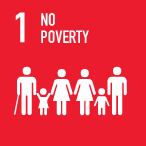
End poverty in all its forms, everywhere.
Goal 3.1 – Implement nationally appropriate social protection systems and measures for all, including floors, and by 2030 achieve substantial coverage of the poor and the vulnerable.
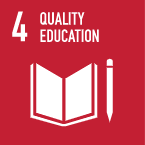
Ensure inclusive and equitable quality education and promote lifelong learning opportunities for all.
Goal 4.3 – By 2030, ensure equal access for all women and men to affordable and quality technical, vocational and tertiary education, including university.
Goal 4.4 – By 2030, substantially increase the number of youth and adults who have relevant skills, including technical and vocational skills, for employment, decent jobs and entrepreneurship.
Goal 4.5 – By 2030, eliminate gender disparities in education and ensure equal access to all levels of education and vocational training for the vulnerable, including persons with disabilities, indigenous peoples and children in vulnerable situations.
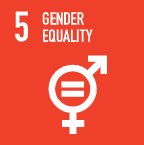
Achieve gender equality and empower all womens and girls.
Goal 5.1 – End all forms of discrimination against all women and girls everywhere.
Goal 5.b – Enhance the use of enabling technology, in particular information and communications technology, to promote the empowerment of women.
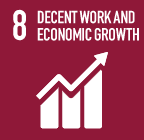
Promote sustained, inclusive and sustainable economic growth, full and productive employment and decent work for all.
Goal 8.3 – Promote development-oriented policies that support productive activities, decent job creation, entrepreneurship, creativity and innovation, and encourage the formalization and growth of micro-, small- and medium-sized enterprises, including through access to financial services.
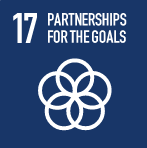
Strengthen the means of implementation and revitalize the global partnership for sustainable development.
Goal 17.7 – Promote the development, transfer, dissemination and diffusion of environmentally sound technologies to developing countries on favorable terms, including on concessional and preferential terms, as mutually agreed.
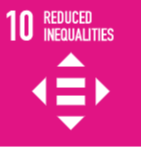
Reduce inequality within and among countries.
Goal 10.2 – By 2030, empower and promote the social, economic and political inclusion of all, irrespective of age, sex, disability, race, ethnicity, origin, religion or economic or other status.
Goal 10.3 – Ensure equal opportunity and reduce inequalities of outcome, including by eliminating discriminatory laws, policies and practices and promoting appropriate legislation, policies and action in this regard.
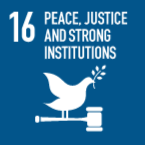
Promote peaceful and inclusive societies for sustainable development, provide access to justice for all and build effective, accountable and inclusive institutions at all levels.
Goal 16.3 – Promote the rule of law at the national and international levels and ensure equal access to justice for all.
Goal 16.10 – Ensure public access to information and protect fundamental freedoms, in accordance with national legislation and international agreements.
Goal 16.a – Strengthen relevant national institutions, including through international cooperation, for building capacity at all levels, in particular in developing countries, to prevent violence and combat terrorism and crime.
